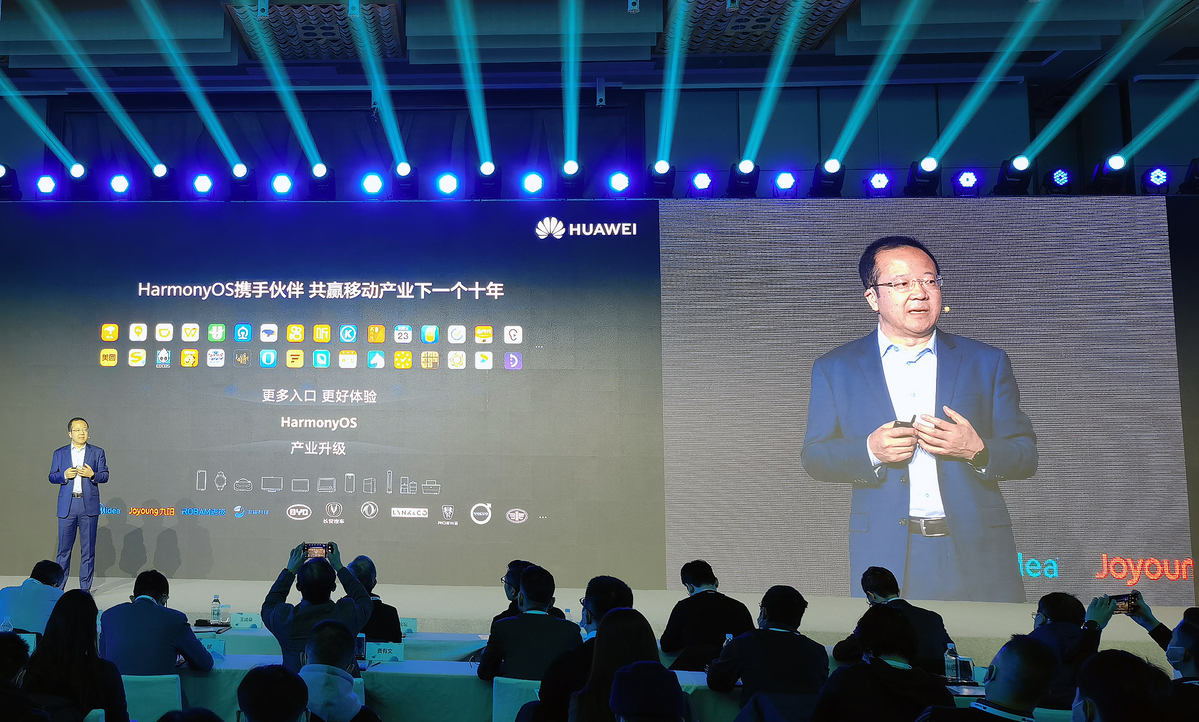Many Huawei products to use HarmonyOS


Huawei Technologies Co said on Wednesday that it plans to expand its in-house operating system HarmonyOS to many of its self-developed products, including smartphones and tablets next year, as the Chinese technology giant accelerates its push to build a robust app ecosystem amid the US government restrictions.
Yang Haisong, vice-president of the software department at Huawei's consumer business group, said that, so far, more than 100,000 software developers have participated in HarmonyOS' development projects and the number of hardware partners has risen from five to 10.
The comments came as Huawei on Wednesday released a developer beta version of HarmonyOS 2.0 targeting at smartphone app developers, as the Chinese technology giant works to prepare for transition from Google's Android operating system to the self-developed HarmonyOS.
The move is meant to encourage developers to come up with applications for HarmonyOS on smartphones, creating a sound foundation for Huawei to officially use the operating system in its smartphones next year.
Wang Chenglu, president of the software department at Huawei's consumer business group, said so far, home appliance makers like Midea, Joyoung, and Robam Appliances, have all released products such as ovens and smoke exhaust ventilators that run on HarmonyOS.
The tech giant's goal for 2021 is to cover more than 100 million devices from more than 40 mainstream brands, Wang said.
HarmonyOS was unveiled more than a year ago, after Washington restricted Huawei from using Google's Android operating system. HarmonyOS is inarguably the biggest push by Huawei to build its own software ecosystem.
In September, Huawei unveiled an updated version of Harmony-OS 2.0, which is designed for the era of internet of things, and it can be used in devices such as Huawei's smartwatches and in-car systems, as well as home appliances from third-party companies.
For instance, with HarmonyOS 2.0, e-commerce giant JD's app can run on televisions, even refrigerators, and other screen-equipped devices. Thus, hundreds of millions of devices including cars equipped with a smart screen can run the JD app or any other app.
At present, the beta version public test recruitment activities have been rolled out and developers and partners can apply to participate in the same for free. However, it is open to select smartphones and tablets including the Mate 40 series and Huawei P40 series as well as the MatePad Pro tablet, Huawei said.
Charlie Dai, principal analyst at market research company Forrester, said: "The US government's bans leave Huawei no choice but to accelerate research and development to build an open tech ecosystem of its own, from hardware to software for smartphones. It is a tough journey but Huawei must go through it to survive and thrive."
But currently, the growth is largely driven by domestic app developers, and more efforts are needed to attract overseas developers to embrace HarmonyOS, said Xiang Ligang, director-general of the Information Consumption Alliance, a telecom industry association.



































